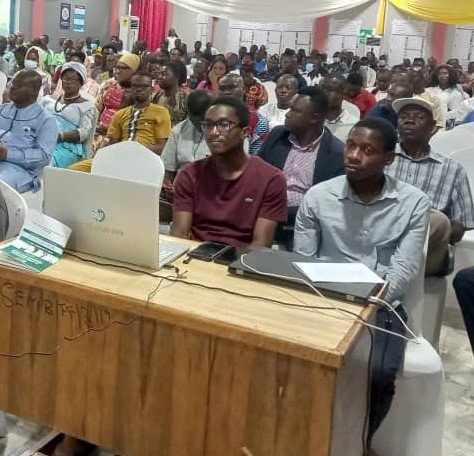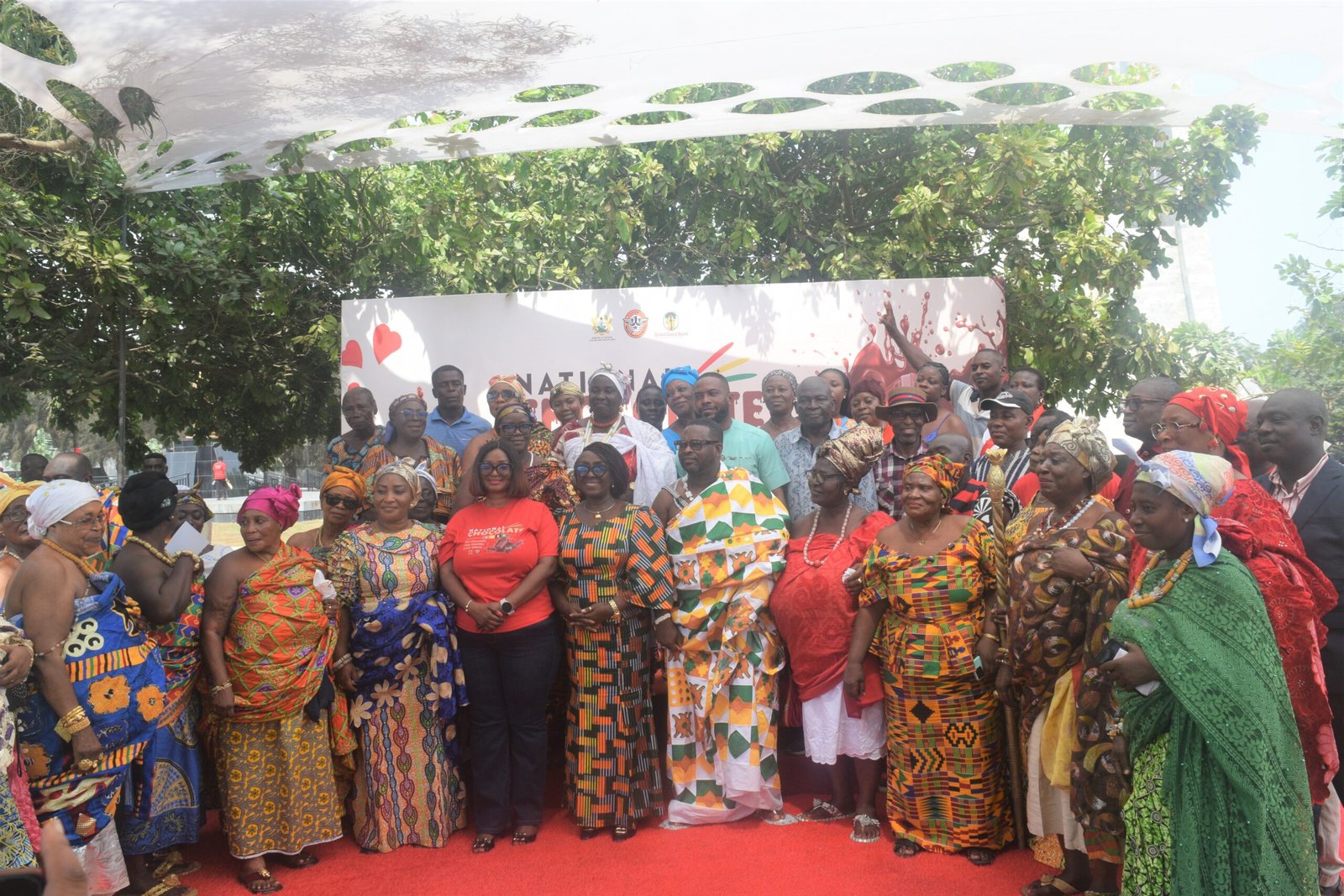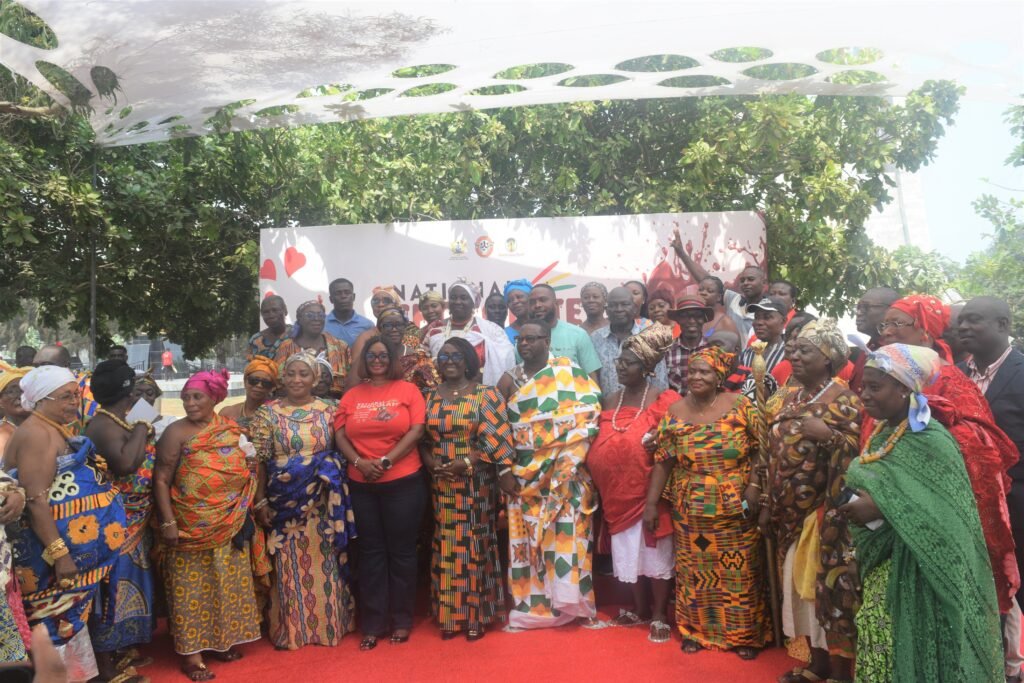News
334 health workers in UWR receive incentive packages

Dr Punguyire speaking at the meeting
Incentive packages to entice staff of the Ghana Health Service to accept postings to deprived areas have been instituted in the Upper West Region (UWR).
In all, a total of 334 staff serving in deprived communities in the UWR have been given study leave to pursue further training in the next academic year.

In addition to this package, some 508 clinical staff serving in various capacities in deprived areas were promoted last year to the next grade ahead of their colleagues in the cities.
The Regional Director for Health Services in the region, Dr. Damien Punguyire, speaking at the annual review meeting of the Regional Health Directorate at Wa, said the incentive systems were to attract more staff to rural areas.
The meeting brought together stakeholders to deliberate on the successes and challenges of the service in the region.
Dr. Punguyire projected that the difficulty in getting people to accept postings to deprived areas would be eliminated if staff were motivated with such incentives to help improve nurse and doctor to population ratios, respectively.
With the posting of 20 more doctors to the region, he noted that the doctor-to-patient ratio stood at one doctor to 9,897 patients and said the increase would boost healthcare delivery in the region.
Touching on the theme for the meeting, the director was upbeat about the number of pregnant women who attended antenatal care and said it had led to a decline in maternal mortalities from 28 in 2021 to 16 last year.
He mentioned that a lot more people were becoming aware of their Human Immuno Virus (HIV) status, and 88 per cent of them were undergoing antiretroviral therapy.
He said data from the region suggested that access to health services is not a problem, but the quality of the services is; hence, the focus should be on access to quality health services.
The Regional Minister, Dr. Hafiz Bin Salih, said that despite the remarkable strides made in reducing maternal and infant mortality, it was sad to know that about 300,000 women the world over died as a result of pregnancy-related problems.
He called for a responsive healthcare delivery system to augment the government’s efforts at providing the necessary human resources and infrastructure to eliminate maternal mortalities.
From Lydia Darlington Fordjour, Wa
News
Consume Made-in-Ghana chocolates- Madam Abla Dzifa Gomashie

She noted that the programme had helped to reshape the celebration of Valentine’s Day in Ghana by leveraging chocolate as a symbol of love, providing a longer period of engagement, and increased awareness.
Mrs Houadjeto said as local consumption of Ghanaian chocolate was being promoted, it would enhance domestic tourism, social cohesion and create jobs for the youth.



She stated that “cocoa is a stress reliever, helps to reduce blood pressure, improves the blood flow to the brain and boosts brain function, acts as a stimulant, and a natural aphrodisiac.”
She called on stakeholders in the entire value chain to continue to promote the consumption of chocolate and cocoa-based products, adding: “It must be continually nurtured and promoted to attract both national and international attention and participation.”



By Jemima Esinam Kuatsinu
News
MTN Ghana Foundation, Regional Blood Bank organise blood donation exercise
The MTN Ghana Foundation, in partnership with the Eastern Regional Blood Bank, has organised the annual blood donation exercise to mark the Valentine’s Day celebration.
The exercise took place at the Manya Krobo Senior High School in the Lower Manya Krobo Municipality, and was on the theme: ‘Safe blood saves lives.’
The student donors were taken through a health checklist, including age, blood level, and weight to ensure health safety before donation, and after which they were provided with milk, milo, and other foods to replenish their blood.
Mr Ransford Gyan, the MTN Ghana Sales Manager for Eastern, Volta, and Oti regions, told the Ghana News Agency that the foundation had a target of about 6000 people partaking in the blood donation exercise across the 16 regions.
“Our belief is that we will get the target set this year to assist in easing the country’s blood shortage. Donating blood is a benevolent act of solidarity, why don’t you join the effort and help save lives,” he quizzed.
He said at the initial stage of the blood donation exercise introduced by the MTN Ghana Foundation, it was limited to MTN staff but now opened up to the society.
Ms Philomina Quayson, Eastern Regional Blood Bank Donor Organiser at the Regional Hospital, said, “Blood is an essential commodity in the hospital because it helps patients who have accidents, surgeries, or medical conditions.
So, I encourage individuals to save lives by visiting any government hospitals to donate blood.”
She said persons 17 years and above, who are free from health conditions such as sickle cell and hypertension could donate.
She urged the public to donate blood as it was good and safe.
Master Kingsley Nartey, a student of Manya Krobo Senior High School, said, “Today is my first time to participate in this exercise and I was panicking but after going through the processes, I realised it was not painful and scary.” —GNA
-

 News1 week ago
News1 week agoAshanti Regional minister meets former ministers
-

 News1 week ago
News1 week agoAfrican Tourism Partners appoints Feancis Doku as West Africa Regional Representative
-

 News1 week ago
News1 week agoFurnish my office with list of all frequency authorisations issued in last 60 days – Sam George instructs NCA Ag.General

